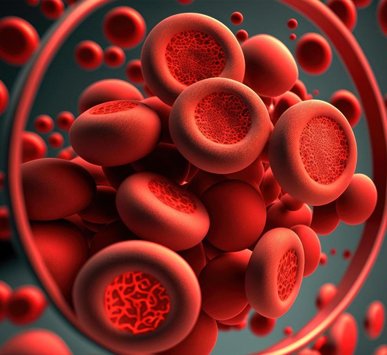
Visiting Hours
Visiting Hours
| Mon -Sat : | 9:00 am - 9:00 pm |

| Mon -Sat : | 9:00 am - 9:00 pm |
Hemoglobin, a vital protein in red blood cells, plays a crucial role in transporting oxygen throughout the body. However, several factors can lead to hemoglobin-related issues, impacting overall health. Anemia, a condition characterized by insufficient red blood cells or low hemoglobin levels, can result from nutritional deficiencies, chronic diseases, or genetic factors. Symptoms may include fatigue, weakness, and shortness of breath.
On the other end of the spectrum, high hemoglobin levels can pose risks, increasing blood thickness and potential clot formation. Conditions such as polycythemia vera or chronic obstructive pulmonary disease (COPD) can contribute to elevated hemoglobin.
Regular check-ups and a balanced diet rich in iron, vitamin B12, and folate are crucial for maintaining optimal hemoglobin levels. Treatment approaches vary based on the underlying cause, ranging from dietary adjustments and supplements to more advanced medical interventions.
Anemia is a condition characterized by a decrease in the number of red blood cells or a deficiency in the amount of hemoglobin, which can result in a reduced capacity of the blood to carry oxygen to tissues. There are various causes of anemia, and they can be broadly categorized into three main groups: blood loss, decreased red blood cell production, and increased red blood cell destruction. Here are some common causes within each category:
• Acute Blood Loss: This can result from trauma, surgery, or childbirth.
• Chronic Blood Loss: Conditions such as gastrointestinal bleeding (ulcers, gastritis, colorectal cancer), heavy menstrual periods, or chronic diseases (e.g., inflammatory bowel disease) can lead to ongoing blood loss.
• Nutritional Deficiencies: Iron deficiency, vitamin B12 deficiency, and folic acid deficiency can impair the production of red blood cells.
• Bone Marrow Disorders: Diseases affecting the bone marrow, such as aplastic anemia or myelodysplastic syndromes, can lead to decreased production.
• Chronic Diseases: Some chronic illnesses, like chronic kidney disease or inflammatory disorders, can affect the production of red blood cells.
• HemolyticAnemias: Conditions where red blood cells are destroyed faster than they are produced. Examples include hereditary conditions like sickle cell anemia, thalassemia, and acquired conditions like autoimmune hemolyticanemia.
• Infections: Certain infections, such as malaria, can lead to the destruction of red blood cells.
• Toxins and Medications: Exposure to certain drugs or toxins can cause hemolysis.
• Chronic inflammatory conditions, such as rheumatoid arthritis or lupus, can interfere with the normal production and lifespan of red blood cells.
• Genetic conditions, such as hereditary spherocytosis or G6PD deficiency, can result in anemia.
• Kidney disease can affect the production of erythropoietin, a hormone necessary for red blood cell production.
• Some cancers, as well as certain chemotherapy drugs, can suppress bone marrow function, leading to anemia.
Polycythemia
Polycythemia is a blood disorder characterized by an abnormal increase in the number of red blood cells, leading to thicker blood. There are two main types: primary (due to bone marrow dysfunction) and secondary (resulting from conditions like chronic hypoxia). Symptoms include headache, fatigue, and potential complications like blood clots. Treatment aims to reduce blood thickness through therapeutic phlebotomy, medication, or addressing underlying causes. Regular monitoring is crucial to manage this condition and prevent complications associated with increased blood viscosity.
Our website aims to provide valuable information and resources for understanding hemoglobin-related issues. Whether you’re seeking preventive measures, lifestyle tips, or need guidance on managing a specific condition, we’re here to empower you with knowledge for a healthier, balanced life.

Dr. Chandrasekhar - Expert Hematologist in Visakhapatnam, India.
| Mon -Sat : | 9:00 am - 9:00 pm |
Copyright 2023 andhrahematology All Rights Reserved by Digital Synergy